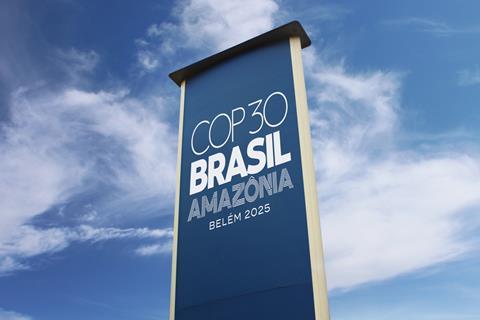Just 30 countries include food loss and/or waste in their Nationally Determined Contributions, missing ‘huge opportunity’ to cut global emissions

Only 30 countries attending COP30 have made commitments to tackle food loss and/or waste, up by just six since COP29, Wrap has revealed.
Food loss occurs before food reaches the consumer – during production, storage or transport – while food waste happens at the retail and consumer level.
Leading food loss and waste NGOs ReFed, The Global FoodBanking network, and Wrap will co-host a half day of action at COP30 on 12 November dedicated to the issue of food waste, which produces 10 per cent of global GHG emissions.
The NGOs warn that neglecting the enormous impact of food waste risks undermining efforts to mitigate against the worst impacts of climate change.
With countries struggling to address climate change, Wrap stresses that action on food waste offers a quick win – the solutions already exist and offer co-benefits for the economy and food insecurity.
Wrap CEO Catherine David said: “To build a truly sustainable food system we must rethink how we value food, from farm to fork and beyond. Reducing food waste is one of the fastest, most practical ways to cut emissions, ease pressure on supply chains, and make better use of the resources we already have.
“A circular approach to food is essential to create a more resilient future and reducing food waste contributes directly to achieving SDGs on climate, hunger, and sustainable production.
“Brazil’s new Inter-sectoral Strategy shows that even major food producing countries can embed food waste reduction across national policy, while other likes Colombia, Chile, and Indonesia are linking these actions to methane reduction, food security, and circular economy goals.”
ReFed president Dana Gunders added: “Reducing food waste offers so many benefits – for the climate, for economies, and for communities in need – which is why it’s so important for countries to include food waste reduction in their Nationally Determined Contributions (NDCs) and climate plans.
“Lots of food waste solutions already exist and are ready to be implemented. Making that commitment is the first step to taking action.”
Wrap’s evaluation shows that 30 countries committed to reducing food loss and/or waste in their NDCs for COP30 (as of 29 October 2025), including seven which commit to tackling both.
Current NDC commitments put the world on track for 4-5°C of warming – far beyond the Paris goal – with the latest WRI Climate Action report showing that none of their 45 indicators are on track to achieve 1.5-degree targets this decade.
| Commitment to reduce food loss | Commitment to reduce food waste | Commitment to reduce both |
|---|---|---|
| Cameroon | Cape Verde | United Arab Emirates |
| Ethiopia | China | Jordan |
| Gambia | Qatar | Uruguay |
| Malawi | Sierra Leone | Cambodia |
| Maldives | UK | Chile |
| Mozambique | Colombia | |
| Senegal | Indonesia | |
| Sri Lanka | ||
| Vanuatu | ||
| Nepal | ||
| Somalia | ||
| Angola | ||
| Micronesia (Federated States of) | ||
| Mauritius | ||
| Kyrgyzstan | ||
| Nigeria | ||
| Eswatini | ||
| Cote d’Ivoire |



